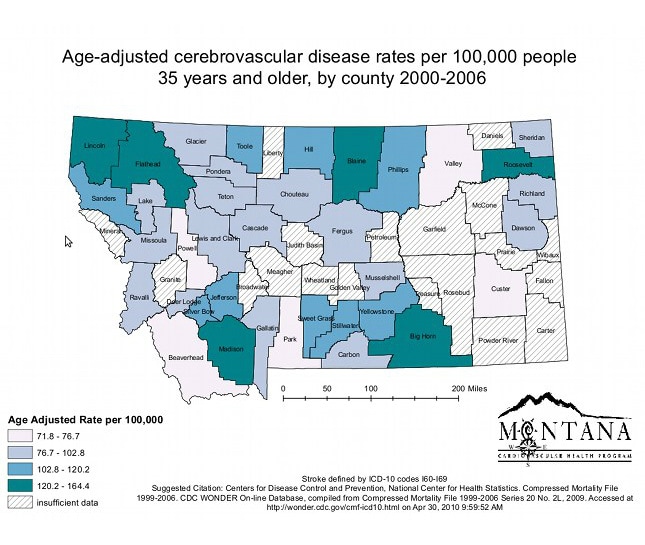Key points
Data sources
As of December 2010, the 14 PSCs in Minnesota were in the Twin Cities Metropolitan Area or in Rochester; 5 additional PSCs were in border locations of neighboring states. Population clusters in the major cities (Duluth, St. Cloud, and Mankato) and the many regional towns of outstate Minnesota are visible both within and outside the 60-minute drive time polygons to a PSC. Additional maps in this series show the distribution of population by race, ethnicity, and age. Additional maps highlighting access to hospitals with specific capacities, such as the presence of a stroke team in the ED, access to telemedicine consults, the presence of stroke unit care, and rehabilitation services, will further inform this planning process.
ArcGIS 9.3
National Center for Health Statistics mortality data provided at the May 2010 training.
Statistical methods, age-adjusted to the US 2000 population.
Carrie Oser, Epidemiologist/Evaluator, Montana DPHHS
(406) 444-4002
coser@mt.gov
Age-adjusted stroke mortality rates per 100,000 people 35 years and older, by county, Montana, 2000-2006 Fogle, Crystelle, Montana DPHHS; McNamara, Michael, Montana DPHHS, [TODAY’S DATE]. Accessed from the Centers for Disease Control and Prevention's Chronic Disease Map Gallery.

